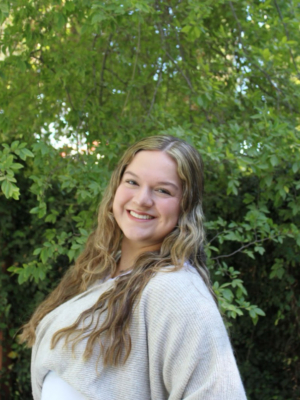Conversations from the Grave
When you remember me, it means that you have carried something of who I am with you, that I have left some mark of who I am on who you are. It means that you can summon me back to your mind even though countless years and miles may stand between us. It means that if we meet again, you will know me. It means that even after I die, you can still see my face and hear my voice and speak to me in your heart.
– Frederick Buechner
Grief is weird. Many of us know about the five stages of grief (denial, anger, bargaining, depression, and acceptance), so I will save you the details of what that entails and how we move through each of them, sometimes without even realizing it. Sometimes even years later. But what happens after these stages? What happens years later when you look up at the sky? Or out into the sea? Or when you look yourself in the mirror wondering what that person who has passed thinks of you now? Are they proud of the person you are becoming, the person who you have grown into? Or maybe they are disappointed. Ashamed of who you are now.
This is something I think of constantly.
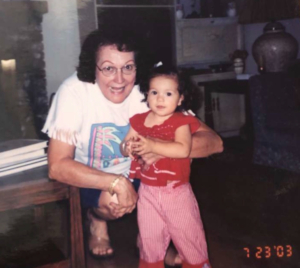 I lost my first grandparent in 2019 at the age of sixteen, my Great Grandma Norma. She was someone who loved shopping, jewelry, and cheese bread (also known as grilled cheese). She was famous for her gold bracelets, but even in her finest jewelry, she would kneel down to pose with little me. When I look at photographs from over twenty years ago, I’m amazed by how much memory a picture can hold. Her passing was my first experience with death, and although I knew what death was, I finally understood the aspect of grieving and how we are supposed to continue without her. I remember talking to her about being a nurse and going to college, although I was a junior in high school. I didn’t know what I wanted to be, or if I even liked nursing. I didn’t know the future obstacles ahead (a pandemic, moving away from my hometown, and losing another family member).
I lost my first grandparent in 2019 at the age of sixteen, my Great Grandma Norma. She was someone who loved shopping, jewelry, and cheese bread (also known as grilled cheese). She was famous for her gold bracelets, but even in her finest jewelry, she would kneel down to pose with little me. When I look at photographs from over twenty years ago, I’m amazed by how much memory a picture can hold. Her passing was my first experience with death, and although I knew what death was, I finally understood the aspect of grieving and how we are supposed to continue without her. I remember talking to her about being a nurse and going to college, although I was a junior in high school. I didn’t know what I wanted to be, or if I even liked nursing. I didn’t know the future obstacles ahead (a pandemic, moving away from my hometown, and losing another family member).
I was worried about football games and parties, about what I was wearing to school tomorrow, and if I had enough money for a nail fill. Two years passed, and I was no longer that high school junior with the same priorities or mindset. I was eighteen, majoring in Pre-Health, living in Fresno California, and working as a Certified Nursing Assistant (CNA). I was studying for microbiology tests and trying to wrap my head around my modern politics course. I was in classes on Tuesdays and Thursdays, and the rest of the time I was driving to Hanford to work at the nursing home. I would sit in my car contemplating if I liked my job or if I felt obligated to “visit” the residents because their families never did. I would stare at the cerulean world above looking for answers in the clouds or birds, but they were never there.
Despite not having the answer, I decided to look into a new career. I looked into being a firefighter (which is absurd, considering they run into burning buildings, and I hate being hot and have thrown fits about having my hair down when it is ninety degrees outside) because the more steps I took toward nursing, the more I felt like I was squeezing into tight jeans, and the fit was uncomfortable. I couldn’t ignore the reality of nursing, the death that surrounded me, the relationships torn apart, and no matter how “stylish” nursing looked, I couldn’t squeeze into this denim, this world.
During this time, I wondered what my Grandma Norma thought of me. I spoke to her (or more accurately spoke to the ridges of my ceiling): Do you think I would be a good nurse? Would you be disappointed if I changed career paths? Is it okay to do something different? Can you hear me? She didn’t answer. So I wondered if she was pleased to see me looking at microbes in microbiology. If she was glad when I cried while working as a CNA because the environment of death surrounded me. If it was okay when I began to make excuses of why I couldn’t go to work. I pondered if she smiled or frowned when I started to hate nursing. If she clapped when I contemplated changing my major in college. If she was happy I wasn’t that sixteen-year-old anymore. The sixteen-year-old who would spend afternoons looking through old photo albums with her, the one who would make us grilled cheese for dinner, and the one who spent hours upon hours talking about her travels and my aspirations. The sixteen-year-old she knew and loved.
I remained in my Nursing pathway and still worked as a CNA (despite my disconnection from the nursing profession) until suddenly I was saying goodbye to another loved one.
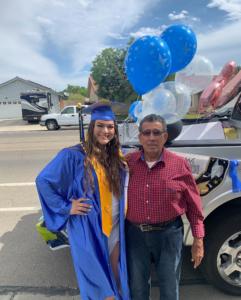 I lost my Grandpa Frank at the age of nineteen in 2022, and this grief was unlike anything I have ever experienced. I lived with him through high school, and he would wake me up in the morning after I ignored my alarm. On weekends, I would go into his room, and he would give me sweets he stored by his bed. We would talk about school and sports and how crazy my Grandma Elsie was. He also picked me up in middle school, which usually led to us getting McDonalds, Jamba Juice, or any fast food restaurant that my sister and I desired. I saw him through every transition of my life, from countless grandparents’ days in elementary school, to middle school pick-ups, and to my high school graduation. He didn’t care if my COVID graduation took place in a parking lot. He showed up in his nice, plaid shirt, and his head raised high. My grandpa and I talked about me going to college, him working as a fieldworker when he was a child, and the different and intricate aspects of the iPhone. His passing was life-changing. I didn’t want to be with my friends every day anymore. I had discovered that family expires. I learned that time is uncontrollable. That I shouldn’t do something if it didn’t make me happy. I learned I needed to change my major. I learned that my grandpa was no longer here.
I lost my Grandpa Frank at the age of nineteen in 2022, and this grief was unlike anything I have ever experienced. I lived with him through high school, and he would wake me up in the morning after I ignored my alarm. On weekends, I would go into his room, and he would give me sweets he stored by his bed. We would talk about school and sports and how crazy my Grandma Elsie was. He also picked me up in middle school, which usually led to us getting McDonalds, Jamba Juice, or any fast food restaurant that my sister and I desired. I saw him through every transition of my life, from countless grandparents’ days in elementary school, to middle school pick-ups, and to my high school graduation. He didn’t care if my COVID graduation took place in a parking lot. He showed up in his nice, plaid shirt, and his head raised high. My grandpa and I talked about me going to college, him working as a fieldworker when he was a child, and the different and intricate aspects of the iPhone. His passing was life-changing. I didn’t want to be with my friends every day anymore. I had discovered that family expires. I learned that time is uncontrollable. That I shouldn’t do something if it didn’t make me happy. I learned I needed to change my major. I learned that my grandpa was no longer here.
I changed my major to English with an emphasis in creative writing and found peace through poetry—a peace I never found in nursing. I wrote what I was feeling, the grief that held me, the things I missed most. I dove into poems by Robert Frost, William Shakespeare, and Emily Dickinson. I was compelled by the book Grieving is Loving, by Joanne Cacciatore, and loved how she defined what I was going through. I ultimately quit my CNA job and changed my major because I was no longer passionate and content walking through the halls of the nursing home. I realized it wasn’t the death, sadness, or the dirty work that surrounded me that made me fall out of love with nursing, but the lack of real emotion I felt about becoming a nurse. The classes were just classes, the nursing home was just a nursing home, and being a nurse was just an occupation. The connection and thrill that held on to other nurses never held me. When comparing it to the euphoria and connection I felt with writing, this was something entirely different. This world of writing was addicting and consuming. I found an understanding of loss and death through writing. I was able to write about loss, love, hope, and confusion. I found myself in the lines of poetry and the mystical world of literature.
But now three years have passed. I have those same feelings and questions that I first had when my Grandma Norma passed away. I am a completely different person. I don’t like the same things like parties and eyelash extensions. I don’t wear the same ripped jeans with too many holes. And I didn’t even finish college in the same major I started. I don’t recognize that sixteen-year-old anymore. I don’t recognize that nineteen-year-old anymore. Maybe my grandparents don’t either. Maybe they do. I have a strange guilt for changing and growing into someone they never got to physically meet. I mean, I can talk to them all I want and tell them about what is frustrating or what happened at work or that I miss them, but I don’t know what they feel. I don’t know if they are proud of me.
How can I navigate these feelings of guilt, confusion, and loss of validation? I don’t have a specific answer. I don’t know if Grandma Norma or Grandpa Frank are proud of me, but I do know who they are. My Grandma believed in doing something you love. My Grandpa believed in hard work and being there for your family. Although our conversations can’t be face-to-face with those who have passed, I still know who they are. What they believed. How they moved through the world. They weren’t perfect. Neither am I, but I can try. I can move with kindness, confusion, understanding, joy, anger, and love. I can remember the values they instilled in me. I am still here to embody what they stood for and encompass who they were, which is something I shouldn’t take lightly. I get to channel my grandparents as best as I can and be someone I know they are proud of. I find pieces of them in who I am and will get to teach these aspects to my children (when I have them), and they will someday pass them on to theirs. We must carry out the dreams of our ancestors because they built the foundation of where and who we are today.
When time passes, we won’t forget who they are because we will be a version of them they are proud of. Remember those who have passed. Their achievements, failures, opinions, and their love, and of course, continue to grieve them, but allow them to continue to live through you.
I know that through incredible loss I have discovered myself more and more. That I don’t want to be a nurse. I didn’t like my job as a CNA. I would not be a very good firefighter. I know that I love the fluidity found in poetry and the community it has brought me to. I love reading and discussing the intricacies found in the text. I am a writer (which is always weird to say).
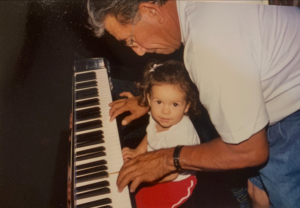 I understand that I am not the same person I was in high school, in college, or yesterday. Which is okay, good even. I know my grandma loved thrifting and frogs and my grandpa loved western films and Almond Joys. I know he was the type of person who saw a piano and had to touch the keys, moving through the world curious and filled with love. I know that my grandparents come to life in my dreams, and I see versions of them in my parents. I see them while reading my poetry and drinking my coffee, and even though we don’t have face-to-face conversations, I still talk to them through prayer at school, at work, on vacation, and before bed. They will remain with me forever.
I understand that I am not the same person I was in high school, in college, or yesterday. Which is okay, good even. I know my grandma loved thrifting and frogs and my grandpa loved western films and Almond Joys. I know he was the type of person who saw a piano and had to touch the keys, moving through the world curious and filled with love. I know that my grandparents come to life in my dreams, and I see versions of them in my parents. I see them while reading my poetry and drinking my coffee, and even though we don’t have face-to-face conversations, I still talk to them through prayer at school, at work, on vacation, and before bed. They will remain with me forever.
I don’t think we are ever supposed to come to terms with living here on earth without them, although it is something we must do—for our loved ones still here, our friends, and ourselves. We must carry on, or as my dad rightfully puts it, “keep on pushing.” It is the one thing we can control in an uncontrollable world. To keep pushing to our goals. To keep pushing for a new version of ourselves. To keep pushing for an easier tomorrow. And when you can’t keep pushing, lay down and channel those who have passed, and they will give you the strength to keep going.
Channeling My Loved Ones through Reading and Writing
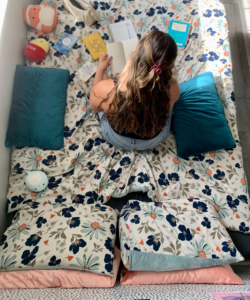
Aissa Perico is a poet based in Fresno, California, and was raised in the Central Valley. She recently graduated from California State University Fresno and is currently pursuing her MFA in Poetry at Antioch University Los Angeles. Her writing navigates her Mexican heritage, culture, love for nature, and everyday life.
Instagram: parakeetpoetry

